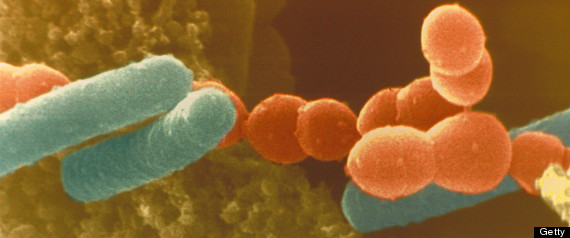Can what you eat affect your mental health? New research links diet and the mind. - The Washington Post
Tina Miller, MA,CFLE stashed this in psychology
Stashed in: #health, Brain, Awesome, Nutrition!, Nutrition, Health Studies, Health, Depression, The Nature of the Beast, Microbiome
But an alternate theory is that the relationship works the other way: Certain foods, or their absence, may contribute to poor mental health. For example, studies in people and rats have linked zinc deficiency to depression. Also, illnesses that cause deficiencies — including celiac disease, an autoimmune disease in which the body reacts to gluten — have shown associations with mood disorders.
Wow:
“We know from animal studies and a human study that a poor diet can impair memory and attention within a week,” she said.
El-Mallakh had hypothesized in 2001 that a ketogenic diet — a high-fat, moderate-protein and low-carbohydrate diet often used to control epileptic seizures and nearly identical to the diet adopted by the 32-year-old woman — could be helpful for bipolar disorder, because many of the medications that work for bipolar disorder have anti-seizure properties.
After being contacted by the woman, El-Mallakh found several other people with bipolar disorder who said they were benefiting from a ketogenic diet. Last year, he published two case studies of its apparent effectiveness.
Huh, gut bacteria actually make most of the serotonin in your body?!?!? Learn something every day...
Thanks for pointing this out -- made me want to read the article:
“There’s a two-way street between what’s going on in the gut and what’s going on in the brain,” said Linda A. Lee, director of the Johns Hopkins Integrative Medicine and Digestive Center — and recent research points to bacteria as possible middlemen in this back-and-forth. Gut bacteria are known to make most of the body’s serotonin, one of several chemicals that regulate mood, and the bugs may even have a hand in shaping behavior. A 2011 study in mice for example, showed that swapping the gut bacteria of two strains of mice — one known for its daring behavior, the other for its fearfulness and shyness — could make the timid mice more willing to explore and the bold mice more anxious and hesitant.
Gut bacteria
Of course, mice are not men, but changing diet has been shown to change human gut bacteria, and fairly quickly. That suggests it’s possible that dietary choices can alter well-being and behavior, Lee said, but researchers aren’t yet sure if this complex interplay means that swapping food in or out of one’s diet can ease or cure a mental illness.
“We’re not at the point where we can use diet as therapy, especially when we’re dealing with someone whose mental health issues render them very disabled, because we just don’t know enough,” Lee said. “I think we’re just on the new frontier, and five or 10 years from now we’ll know more.”
More about gut bacteria:
http://www.huffingtonpost.com/2013/09/16/gut-bacteria-influence_n_3908465.html
Once again the evidence points to a diet of meat and vegetables and no processed foods:
“Diet quality” refers to the kinds of foods that people eat, how often they eat them and how much of them they eat. In several studies, including a 2011 analysis of more than 5,000 Norwegians, Berk and his collaborators have found lower rates of depression, anxiety and bipolar disorder among those who consumed a traditional diet of meat and vegetables than among people who followed a modern Western diet heavy with processed and fast foods or even a health-food diet of tofu and salads.“Traditional diets — the kinds of foods your grandmother would have recognized — have been associated with a lower risk of mental health issues,” Berk said. Interestingly, that traditional diet may vary widely across cultures, including wheat for some people but not for others; the common element seems to be whole, unprocessed, nutrient-dense foods.
“There’s lots of hype about the Mediterranean diet [fruits, vegetables, whole grains, olive oil, nuts, fish] but the traditional Norwegian diet [fish, shellfish, game, root vegetables, dairy products, whole-wheat bread] and the traditional Japanese diet [fish, tofu, rice] appear to be just as protective” of mental health, he said.
The association between diet and mental well-being may start even before birth. A 2013 study of more than 23,000 mothers and their children, led by Berk’s frequent collaborator and Deakin colleague Felice Jacka, suggests a link between a mother’s consumption of sweets and processed foods during pregnancy and behavioral and mental health issues in her child at age 5.












9:52 AM Apr 01 2014